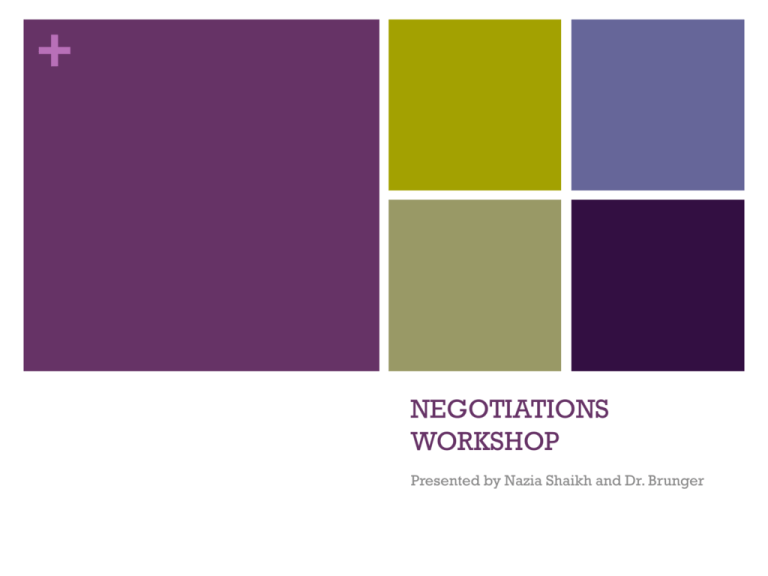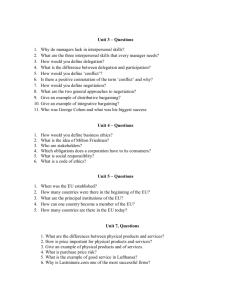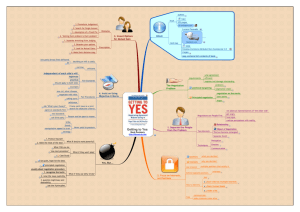negotiations workshop
advertisement

+ NEGOTIATIONS WORKSHOP Presented by Nazia Shaikh and Dr. Brunger + About Negotiation Negotiation is a process by which two parties with an interest in the same issue seek to reach an agreement that is acceptable to other sides Agreement between the parties is the essence of negotiation + Types of Negotiations Positional Bargaining This approach is best used in situations where the issue is purely financial, there are no other issues to take into account and no need to preserve amicable relations Integrative Bargaining Interest based or principled negotiation. Cooperative and collaborative strategy that aims to reach a mutually beneficially outcome for both parties taking to account their various interests. Focuses on why the parties want particular outcome as well as what it is they want + Positional Bargaining Mark damaged two panels of his neighbours fence beyond repair and agrees to pay for replacements. Dawn, his neighbour, maintains that Mark should pay for the entire fence (ten panels) to be replaced as two new panels would stand out and spoil the look of the garden. She also demands top quality panels (50 pounds each) whilst Mark proposes to provide average quality panels (30 pounds each). Dawn can fit the panels herself and there are no deliver costs + Integrative Bargaining Tom and Jonathan are arguing over one remaining orange. Their mother, Jenny, cuts the orange in half and gives to each child, seeing this as a perfect compromise. However, if she had asked why each child wanted the orange, Jenny would have discovered that each had a different assignment at school the following day that involved part of an orange: Tom needed the juice for home economics whilst Jonathan needed the peel for an art class. As such, Jenny’s objectively fair solution failed to meet the subjective needs of either child whereas asking why they wanted the orange would have led to a different bass for division that would have given each child exactly what they wanted + Negotiation Skills The deal needs to be attractive to the other part so you need to offer them something of value Find out why ( by asking questions) or predict (on the basis of your knowledge of the other party) what will hold value for them Enhance your offer by “throwing in” things of little value to you Keep the tone of negotiation amicable by making reasonable offers that leave you room to maneuver Negotiation requires the ability to list and to ask appropriate questions How will you go about fact-finding from the other team What kind of questions would you ask the other team + Research & Prepare Analysis of the facts, Research the law Formulate the negotiation strategy - BATNA - WATNA + Conducting the Negotiation - Don’t dive in! - Introductions are important! - Take the time to create a framework for negotiation - Try to set an agenda! - Deadlock








